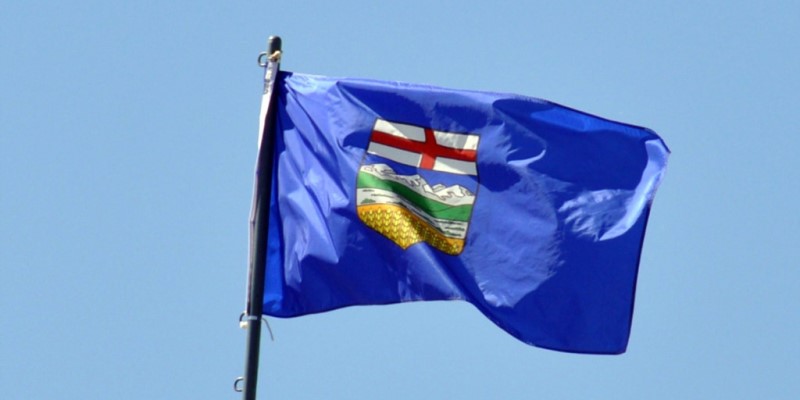Alberta Court of Appeal rejects carbon tax, protects provincial jurisdiction

On Monday, in a precise and lucid judgment, a majority of the Alberta Court of Appeal found the federal carbon tax to be unconstitutional. Unlike the appeal courts in Saskatchewan and Ontario, which had found by 3-2 and 4-1 margins respectively that the Greenhouse Gas Pollution Pricing Act, 2020 was constitutional, the Alberta court concluded that the federal government was not able to encroach upon provincial jurisdiction merely by citing climate change and greenhouse gas emissions as a national concern.
The issue will now go to the Supreme Court of Canada, where the outcome is difficult to predict. Given the Alberta court’s solid reasoning and the Supreme Court’s existing jurisprudence, there is at least a possibility that the federal carbon-pricing legislation will be ruled beyond the power of Parliament to enact.
It was not expected to be this way.
When the constitutionality of the carbon tax was first challenged, legal observers expected that the federal government would cite its taxation power under section 91(3) of the Constitution Act 1867. Instead, it chose to defend its scheme exclusively on the ground that it fell within the national concern doctrine of Parliament’s peace, order and good government (POGG) power. (Its reticence to use its taxation power may have been due to the broad discretion the Act confers on government officials, which could run afoul of section 53, the “no taxation without representation” provision. Or perhaps acknowledging that the carbon tax was a tax was politically unpalatable.)
The decision to rely on the POGG power backfired in the Alberta Court of Appeal. The judgment of Chief Justice Fraser, Watson J.A. and Hughes J.A., is a superb piece of textual interpretation. (Wakeling J.A. concurred in a separate judgment, while Feehan J.A. dissented.) Section 91 of the Constitution Act 1867 begins “It shall be lawful for the Queen, by and with the Advice and Consent of the Senate and House of Commons, to make Laws for the Peace, Order, and good Government of Canada...” Those words are the basis for the argument that the federal government has the power to encroach on provincial jurisdiction in order to legislate on “single, distinct and indivisible” matters of national concern.
However, the text of section 91 continues. It says the power to make laws for the Peace, Order and good Government of Canada exists “in relation to all Matters not coming within the Classes of Subjects by this Act assigned exclusively to the Legislatures of the Provinces.” Therefore, wrote the Alberta majority, Parliament’s POGG power is a residuary power that only applies where the “matter” does not fall within one of the heads of powers assigned exclusively to the provinces. It does not allow the federal government to appropriate or override provincial powers including property and civil rights (s 92(13)), rights over natural resources (s 92A) and property in lands, mines, minerals and royalties (s 109). The Greenhouse Gas Pollution Pricing Act, 2020, whose subject matter is the regulation of GHG emissions, does exactly that, and therefore cannot be reconciled with the division of powers in the Canadian Constitution. As the majority stated:
The Act is a constitutional Trojan horse. Buried within it are wide ranging discretionary powers the federal government has reserved unto itself. Their final shape, substance and outer limits have not yet been revealed. But that in no way diminishes the true substance of what this Act would effectively accomplish were its validity upheld. Almost every aspect of the provinces’ development and management of their natural resources, all provincial industries and every action of citizens in a province would be subject to federal regulation to reduce GHG emissions. It would substantially override ss 92A, 92(13) and 109 of the Constitution.
The majority endorsed the conclusion of Huscroft J.A., the lone dissenting judge at the Ontario Court of Appeal:
No doubt, action or inaction by one province could undermine the effectiveness of another province’s efforts to establish carbon pricing, but this does not speak to provincial inability to address the GHG problem; it is, instead, a reflection of legitimate political disagreement on a matter of policy, and in particular the suitability of carbon pricing as a means of reducing GHG emissions in a particular province.
The internal contradictions in the federal government’s position attracted its scorn:
Its claimed need for national standards rests on the proposition that if a province takes a divergent approach, this “failure” to act compromises the entire scheme… So the federal government must act. Its approach is euphemistically described as a “backstop.” And even though the Act confers broad discretion on the Executive, the federal government claims it can be relied on not to invade provincial jurisdiction too much. In other words: “We can’t trust you, but you can trust us.” Some might call this constitutional chutzpah.
In rejecting the constitutionality of the federal carbon tax, the Alberta Court of Appeal has put the division of powers on its proper footing. “The federal and provincial governments are co-equals,” the majority wrote, “each level of government being supreme within its sphere. The federal government is not the parent; and the provincial governments are not its children.” Here’s hoping the Supreme Court of Canada does not rap its knuckles for getting out of line.
Author:
Subscribe to the Fraser Institute
Get the latest news from the Fraser Institute on the latest research studies, news and events.

